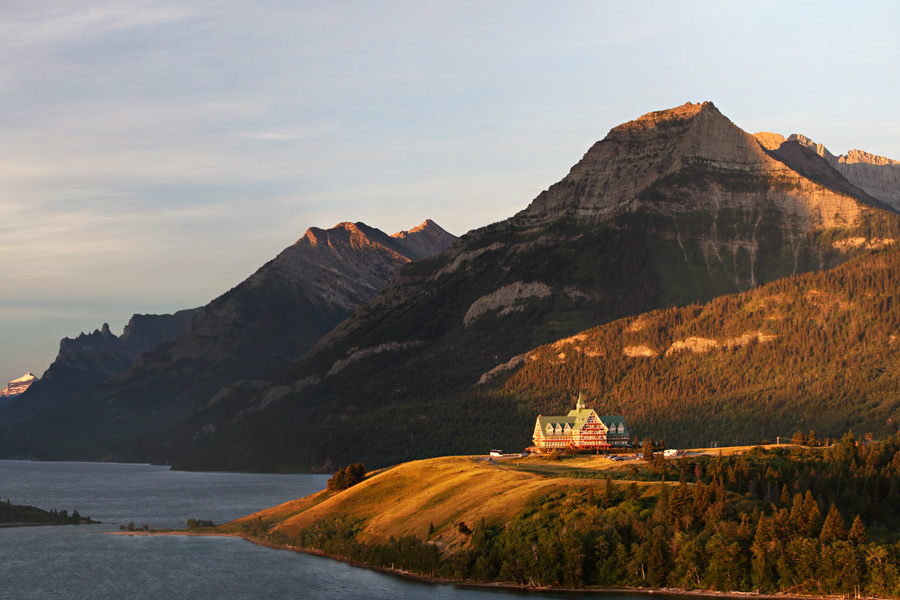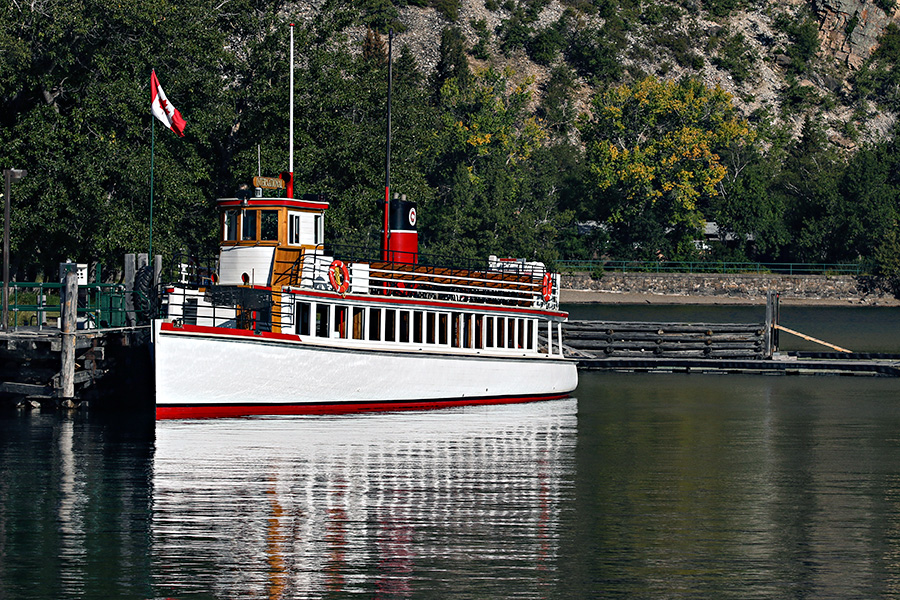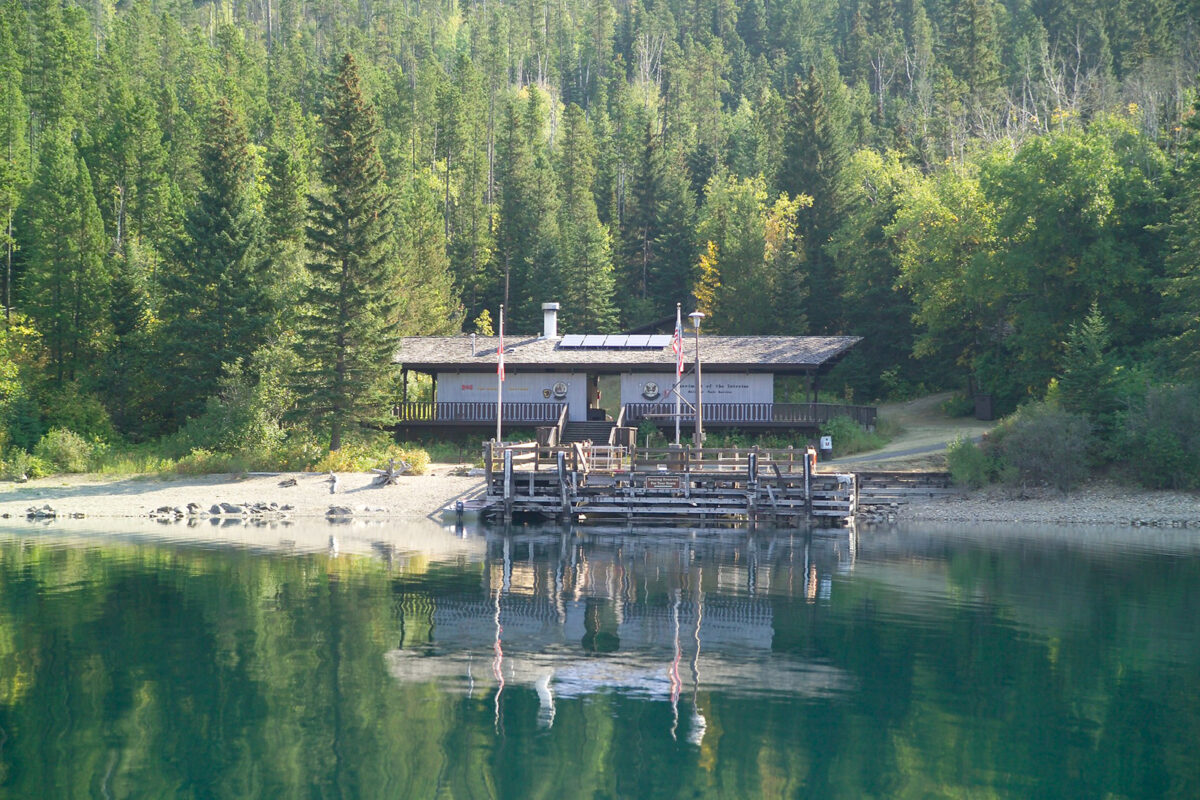Waterton-Glacier Announces Reopening of Goat Haunt
For the first time since 2019, cross-border pedestrian and boat travel between Waterton Lakes National Park and Glacier National Park’s Goat Haunt area will resume for the 2023 season
By Tristan Scott
Officials with Waterton Lakes National Park in Alberta, Canada and Glacier National Park on Wednesday announced that pedestrian and watercraft cross-border travel between the parks will reopen for the 2023 season.
The Goat Haunt area of Glacier National Park, a remote backcountry outpost on the southern end of Upper Waterton Lake that has not opened since 2018, will resume operations for the season on June 24. The area is only accessible by watercraft or hiking trails. It was shuttered in 2019 due to staffing challenges and didn’t operate in 2020-2022 due to COVID-19.
Glacier National Park will have interpretive programs starting the week of June 25 at Goat Haunt this year with a variety of talks at the Snowflake pavilion and short guided walks for visitors traveling by boat.
International Peace Park hikes will be co-led with a Parks Canada Interpreter and a National Park Service interpretive park ranger on Fridays starting Friday, June 30 to Friday, Sept. 1.
The season program calendar is still being updated and visitors should check back as the season nears.
Goat Haunt backcountry camping shelters will also be open for the 2023 season.
“I’m thrilled that we are reopening Goat Haunt and renewing a visitor experience that is at the heart of the International Peace Park,” Dave Roemer, superintendent of Glacier National Park, said. “Goat Haunt is the perfect place to celebrate the long-standing peace and friendship between the United States and Canada, and the shared resources and splendor that we protect through Parks Canada and the National Park Service.”

The best and most common way to access Goat Haunt is from Waterton Lakes National Park.
Visitors can:
- Hike the Lakeshore trail. The trail starts in the Waterton Village at the Bertha trailhead and leads south to the Goat Haunt Ranger Station. The hike to Goat Haunt is 13.5 kilometers one way (nearly 8.5 miles), requiring a prebooked return ferry trip through Shoreline Cruises, or nearly 17 miles (27 kilometers) round trip.
- Paddle, take a personal watercraft, enjoy a scenic cruise, or take a hiking ferry. All non-motorized watercraft requires an inspection, and all motorized watercrafts require a 90-day quarantine before launching in Waterton Lakes National Park. More information on watercraft requirements is available on the Parks Canada website.
Travel across the United States-Canada border requires planning ahead and adherence to U.S. Customs and Border Protection (CBP) and Canadian Border Service Agency (CBSA) regulations. Visitors wanting to cross the border by personal watercraft or hiking trail must have a passport and report their entry to the United States via the CBP ROAM app and their return to Canada to CBSA via telephone. Visitors taking a cruise through Shoreline Cruises do not require a passport. Kiosks will be available near the boat dock for visitors to use ROAM. More information about the CBP ROAM app can be found on the CBP’s website.
“Crossing the border by hiking trail or watercraft is a unique experience for visitors to enjoy the majesty of the Waterton-Glacier International Peace Park,” says Locke Marshall, Waterton Lakes Superintendent. “We are eager to provide an experience once again for peace park visitors to connect with nature on both sides of the United States-Canada border.”

Quick Facts
- Designated in 1932, the Waterton-Glacier International Peace Park is the world’s first International Peace Park. Situated on the Canada-U.S. border, it offers outstanding scenery and diverse flora and fauna. The International Peace Park commemorates the peace and goodwill Canada and the United States continue to share.
- Maps and lists of day hikes in the Goat Haunt area can be found on Glacier National Park’s website. Visitors are encouraged to check the trail status reports on National Park Service website and the Parks Canada website before embarking on their trip.